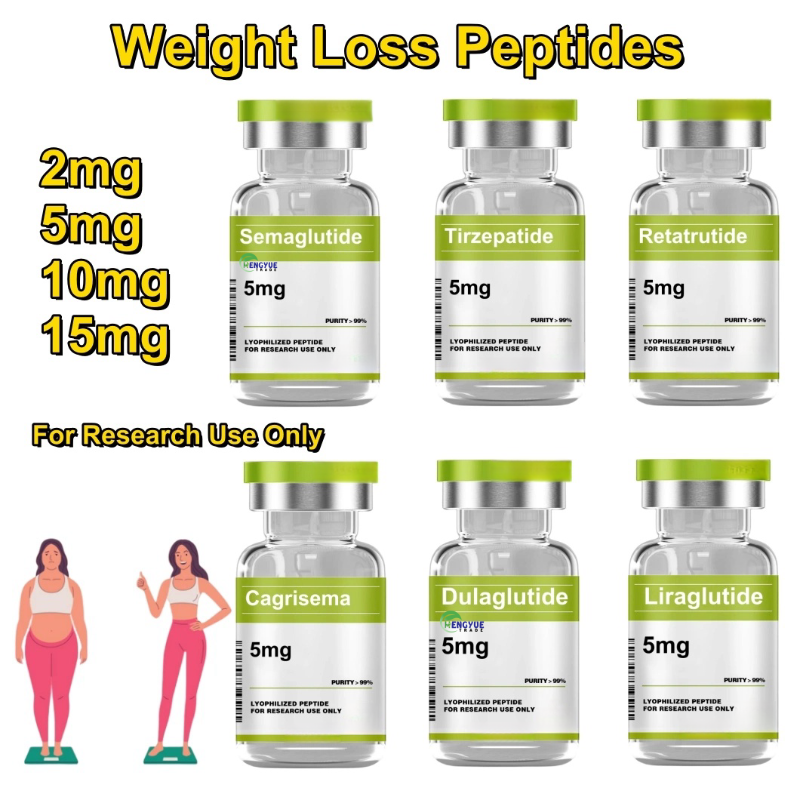-
Categories
-
Pharmaceutical Intermediates
-
Active Pharmaceutical Ingredients
-
Food Additives
- Industrial Coatings
- Agrochemicals
- Dyes and Pigments
- Surfactant
- Flavors and Fragrances
- Chemical Reagents
- Catalyst and Auxiliary
- Natural Products
- Inorganic Chemistry
-
Organic Chemistry
-
Biochemical Engineering
- Analytical Chemistry
-
Cosmetic Ingredient
- Water Treatment Chemical
-
Pharmaceutical Intermediates
Promotion
ECHEMI Mall
Wholesale
Weekly Price
Exhibition
News
-
Trade Service
Recently, Gilead’s Trop-2 targeting antibody conjugated drug Trodelvy (sacituzumab govitecan-hziy) has received frequent regulatory reports.
It was first fully approved by the FDA for the treatment of unresectable locally advanced or metastatic triple-negative breast cancer (TNBC) in adults.
The patient was later approved by the FDA for accelerated approval for the treatment of locally advanced or metastatic urothelial cancer patients who had previously received platinum-containing chemotherapy and PD-1/L1 inhibitor treatment
.
Sacituzumab govitecan-hziy is an antibody-conjugated drug (ADC) targeting TROP-2 developed by Immunomedics.
It is cleavable by SN-38 (active metabolite of irinotecan, topoisomerase I inhibitor).
The CL2A linker is conjugated with the humanized TROP-2 monoclonal antibody hRS7 IgG1κ
.
In September 2020, Gilead purchased Immunomedics for US$21 billion and included the drug in the bag
In April 2020, Trodelvy was approved by the FDA for accelerated approval for adult patients with metastatic triple-negative breast cancer (mTNBC) who had previously received at least two therapies, becoming the first ADC approved by the FDA to specifically treat relapsed or refractory mTNBC The drug is also the first anti-Trop-2 ADC drug approved by the FDA
.
According to Gilead’s financial report, Trodelvy’s sales in less than eight months after its listing have reached 137 million U.
In April 2019, Genting Xinyao and Immunomedics reached a licensing agreement to obtain the development, registration and commercialization rights and interests of the drug in Greater China, South Korea and some Southeast Asian countries and regions, with a transaction amount of up to 835 million US dollars
.
In January 2021, Genting Shinya announced that it had submitted a new drug listing application for Trodelvy to patients with metastatic triple-negative breast cancer (mTNBC) who had received at least two lines of previous treatment
About TROP-2 and drugs under development
TROP-2 belongs to the TACSTD family and is a cell surface glycoprotein encoded and expressed by the TACSTD2 gene, also known as tumor-associated calcium signal transducer 2 (TACSTD2), epidermal glycoprotein 1 (EGP-1), gastrointestinal tumor-related antigen ( GA733-1), surface marker 1 (M1S1)
.
The study found that compared with normal tissues, TROP-2 is more expressed in various human epithelial cancers, including breast cancer, lung cancer, gastric cancer, colorectal cancer, pancreatic cancer, prostate cancer, cervical cancer, head and neck cancer, and ovarian cancer.
At present, TROP-2 has become a new target for researchers to develop ADC
.
In addition to Trodelvy, there are many Trop-2 targeted ADC drugs under development at home and abroad, such as Daiichi Sankyo’s DS-1062, Biotech’s BAT8003, Kelun Pharmaceutical’s SKB264, and Duoxi Bio’s DAC-002
DS-1062 (Datopotamab Deruxtecan, Dato-Dxd) is composed of human IgG1 monoclonal antibody Datopotamab targeting Trop-2, cleavable cysteine Linker and topoisomerase Ⅰ inhibitor, which compares docetaxel treatment experience Stage III clinical treatment of advanced or metastatic NSCLC has begun to recruit patients
.
BAT8003 is a glycosylation-modified recombinant humanized anti-Trop-2 antibody BAT0808 developed by Biotech through a stable thioether bond covalently linked to the drug linker Batansine to form AD.
It was developed for the treatment of Trop- 2Treatment of positive advanced solid tumors, including breast cancer, non-small cell lung cancer and urothelial cancer
.
SKB264 is a Trop-2 ADC drug independently developed by Kelun Botai, consisting of a recombinant anti-Trop-2 humanized monoclonal antibody, a linker containing a 2-(methylsulfonyl) pyrimidine linker, and a topoisomerase inhibitor KL610023 Composition, intended for the treatment of malignant solid tumors
.
Non-clinical research data show that the drug has significant anti-tumor activity in TROP-2 positive breast, stomach, lung, and colorectal cancer animal models, and has good safety and tolerability
DAC-002 (recombinant humanized anti-Trop-2 monoclonal antibody-Tub196 coupling agent for injection) is an ADC drug composed of anti-Trop-2 monoclonal antibody coupled with anti-tubulin TubulysinB analogues through a smart linker.
It is mainly used for Treatment of Trop-2 positive triple-negative breast cancer, small cell lung cancer, pancreatic cancer and other solid tumors
.
Frequent trading of drugs targeting ADC around Trop-2
In view of the excellent efficacy of Trop-2 ADC drug Trodelvy, there are more and more transactions surrounding Trop-2 ADC drugs
.
In April 2019, Genting Shining and Immunomedics reached a license agreement to obtain the development, registration and commercialization rights and interests of Trodelvy in Greater China, South Korea and some Southeast Asian countries and regions, with a transaction amount of up to 835 million US dollars
.
In December 2019, Junshi Biotechnology obtained the license to use DAC-002 from Duoxi Biotechnology through an exclusive license authorization method.
The two parties agreed on a down payment of 30 million yuan, a R&D and listing milestone fee of not more than 270 million yuan, and annual sales revenue.
6%-10% revenue share
.
In July 2020, AstraZeneca and Daiichi Sankyo reached a global development and commercialization agreement on DS-1062
.
According to the agreement, AstraZeneca will pay US$1 billion in installments, US$1 billion in registration miles and US$4 billion in sales miles to Daiichi Sankyo
In January 2021, Henlius and Chiome Bioscience, Inc.
reached an exclusive license agreement to obtain the latter's exclusive rights in the development, production and commercialization of anti-Trop-2 antibodies in China, with a transaction amount of US$105 million
.







